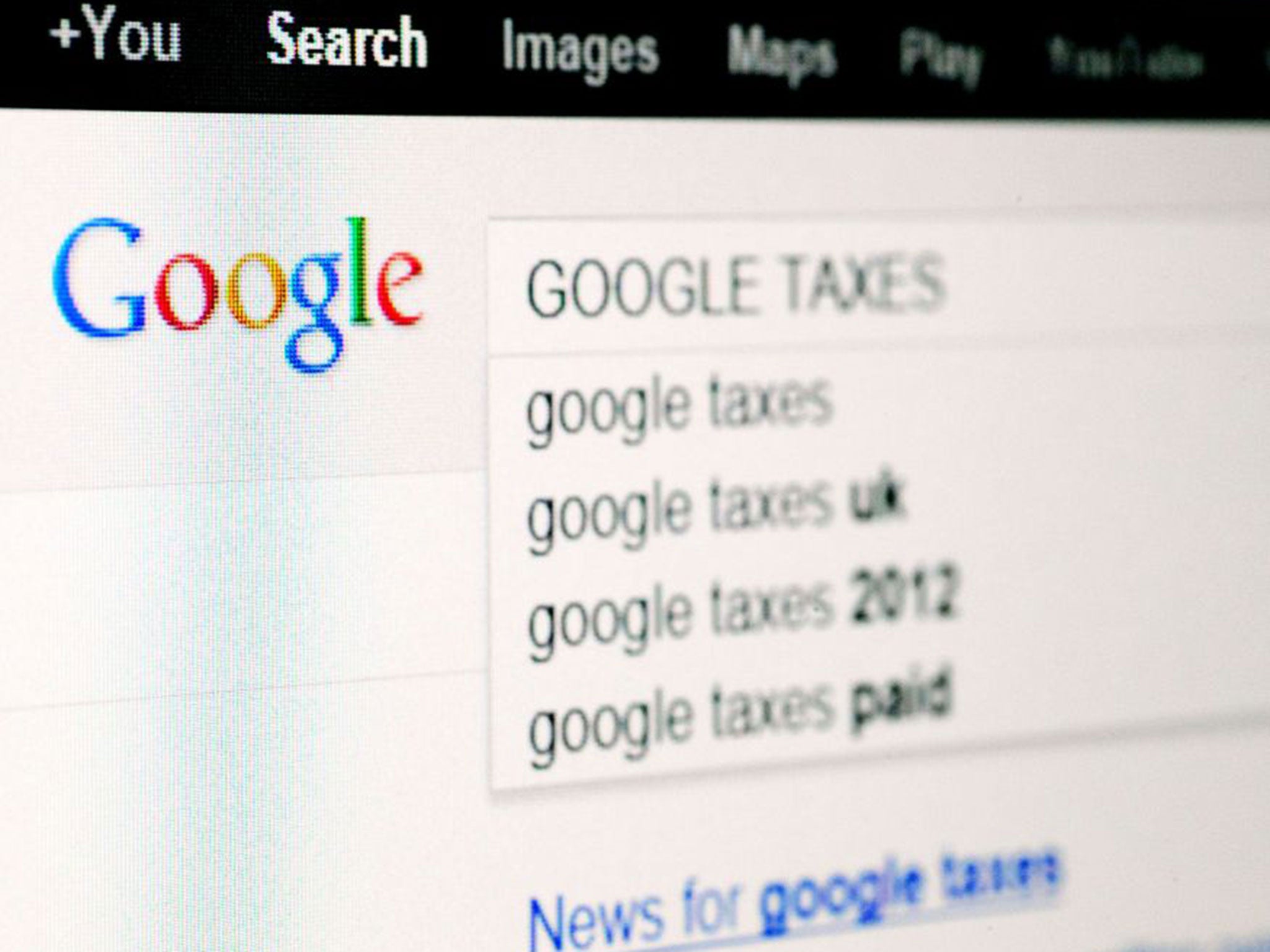Why Google’s sweetheart tax deal leaves a sour taste
As an individual I make big contributions to the public coffers without being a drain on the apparatus of the state. It is a shame that Google, cannot say the same


Your support helps us to tell the story
From reproductive rights to climate change to Big Tech, The Independent is on the ground when the story is developing. Whether it's investigating the financials of Elon Musk's pro-Trump PAC or producing our latest documentary, 'The A Word', which shines a light on the American women fighting for reproductive rights, we know how important it is to parse out the facts from the messaging.
At such a critical moment in US history, we need reporters on the ground. Your donation allows us to keep sending journalists to speak to both sides of the story.
The Independent is trusted by Americans across the entire political spectrum. And unlike many other quality news outlets, we choose not to lock Americans out of our reporting and analysis with paywalls. We believe quality journalism should be available to everyone, paid for by those who can afford it.
Your support makes all the difference.I have just completed my tax return, which is usually a mathematical rather than moral exercise. My accountant – a studious man with a commendable lack of creativity – tells me exactly how much I owe Her Majesty’s Revenue and Customs (HMRC), and I write a cheque for that amount.
I would imagine that most people would go through roughly the same process when filling in their tax return, whether they use an accountant or not. What we don’t do is come up with a figure we’d like to cough up in tax, tell HMRC how much we are going to pay, and expect that to be the end of it. This, however, appears to be Google’s attitude to paying its taxes in the UK.
In truth, we don’t like Google much anyway. We admire the fact that Google can provide the answer to any question, but we also see the company as symbolic of the worst aspects of corporate hegemony in the digital age. We don’t like that the folks at Google are able to track what we’re doing, where we’re going and what we buy. We don’t know exactly what they know about us as we go about our lawful business, but we are sure it’s more than we would like. Most of all, we don’t like the fact that Google appears to be getting away with murder as far as paying its whack of taxes is concerned.
The cosy deal it has done with George Osborne to pay £130m to cover a decade of back taxes is an outrage to those of us who play by the spirit, and not just the letter, of the law. To put this in perspective, Google spends £8.4m a year on chicken for its staff canteens, and the company’s annual UK revenues are almost £4bn. But because the company has been able to run the argument that it has no “permanent establishment” in Britain – a bit rich when it has been building a new £1bn headquarters to house its 5,000 British employees in King’s Cross, north London – it has been able to stay outside the UK’s corporate tax net. It is less of a loophole (technical definition: an arrow slit in the wall of a fortress) than a socking great breach through which the Government invites corporate giants to drive a coach and horses. There is, for most of us, a moral dimension to paying tax. OK, I have occasionally paid workmen in cash to avoid VAT. But I believe strongly that paying taxes is part of my responsibility as a good citizen. I’ve paid my full dues on my income throughout my working life, and yet I have private health insurance and my daughter went to a fee-paying school. In my book, that makes me a model member of the community: I make big contributions to the public coffers without being a drain on the apparatus of the state.
I have never understood why paying tax doesn’t have the same halo effect as other civic duties, such as voluntary work or philanthropy. As well as putting the avoiders and the evaders in the stocks, we should be venerating those – individuals and companies – who pay every penny of what they owe to HMRC. And, as I have said here before, why not publish a table of Britain’s top taxpayers? I don’t think anyone would complain about the honours system being used to recognise them. Meanwhile, the majority of us fill in our returns honestly, knowing it’s an iniquitous system that favours corporations over individuals. People are genuinely angry about this – and Osborne’s deal with Google will only make a bad situation worse.
Join our commenting forum
Join thought-provoking conversations, follow other Independent readers and see their replies
Comments